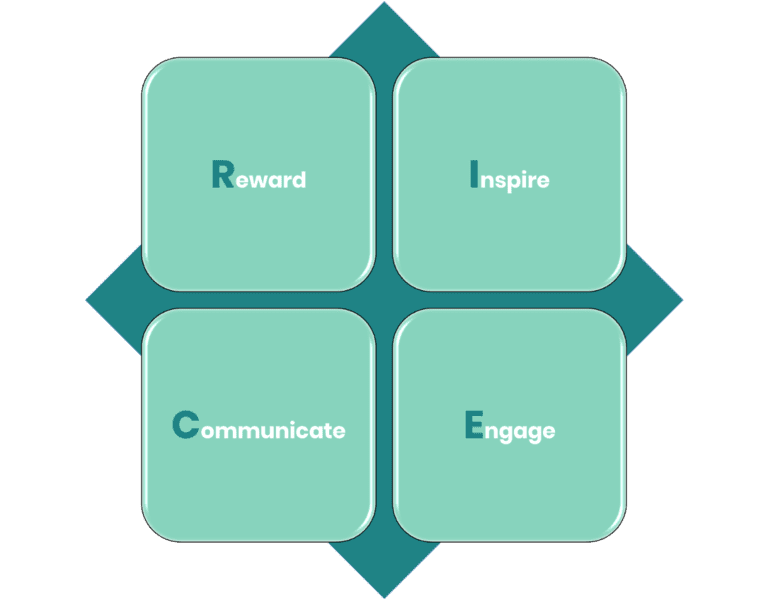The last few months have been overwhelming, to say the least. This season, heralded by the reality of the coronavirus pandemic, has been characterised by the disruption of business operations, reduced income, delayed or cancelled projects, and delayed payments. Lockdowns became the order of the day in most countries, necessitating remote work.
Amid all of this, the central charge to all employees has been to “remain productive”. Organisations have put a lot of effort into planning business continuity measures, lengthy meetings, webinars, online courses, marketing campaigns, and other initiatives to support their workers’ productivity. This is crucial, as employees have had to learn to manage office tasks alongside life in a pandemic and the challenges that have come with it.
While the above mentioned initiatives are essential for business continuity and risk management, there is another factor that is particularly important for brand longevity. That is employee well-being. According to the research conducted by Workforce View[2], 68% of employee respondents report feeling stressed at least once a week whilst at work and report that this stress affects their productivity levels.
Research conducted by the University of Leeds in collaboration with Phillips Consulting (pcl.) also revealed that some employees who had to work remotely over the lockdown period reported engaging in disruptive behaviour (bad-mouthing their employers). This new behaviour came as a response to feeling stressed from having to adapt to changes in the use of technology and feeling less supported without face-to-face interaction. The factors discussed above – work overload, stress, and lack of adequate support – could give rise to what is commonly phrased as “The disgruntled employee”.
A disgruntled employee is an individual who has developed negative behaviours and attitudes at work, usually in response to being dissatisfied with current work practices. Disgruntled employees are typically characterised by disruptive behaviours such as:
- Continuous poor performance on work tasks
- Lack of motivation / negative attitude towards taking on work tasks and in general
- Strained relationships because of bad attitude towards teammates
- Negative attitude towards customers
- Constantly challenging team/business decisions
- Absenteeism
What could this mean for employers?
A 2017 article by TrendWatching[3] rightly explained how the old order of “black box” businesses – where company branding was defined by marketing efforts and information projected externally to an audience who were not privy to internal practices – is gone.
Businesses are now “glass boxes” with brands that are built and re-enforced by their internal culture, which resonates stronger externally than any marketing efforts. This means that people are watching out for how employees are treated, how decisions are made, what values drive the organisation, and the leaders’ personalities.
Hence, having employees who are not connected to a business and engage in disruptive behaviour could damage the brand and directly affect business continuity in the long run.
As we navigate the post-lockdown business environment and gradually resume work in physical office spaces, it is important to reflect on the practices that guided remote work during the lockdown and note the effect on employees, as well as lessons to be learnt.
In line with best practice, many HR experts recommended a host of procedures that organisations needed to implement to manage remote work operations successfully, to foster employee well-being. Some of these practices are outlined below:
- Ensuring the right digital technology was in place to support remote work
- Getting employee buy-in before rolling out remote work practices
- Taking into consideration, when planning, other factors that may affect employee productivity during the lockdown period (Dependents, Learning Styles, Engagement Styles, Technology, Mental well-being),
- Pulse taking, that is, constantly tracking how employees are faring with tasks and general remote work
- Re-enforcing the organisation’s culture on how to communicate messages, review work tasks, and manage employee welfare.
The key to successfully implementing the above recommendations is to have a stellar internal culture that recognises the importance employee contribution plays in achieving business success.
The role of managers in building employee loyalty cannot be underplayed. Managers are the spokesperson of the organisation to their subordinates. Organisations must select staff managers who have not only technical expertise, but also the charisma, empathy, and emotional maturity to adequately manage individuals for success. pcl. offers the accredited Thomas International Trait Emotional Intelligence Questionnaire (TEIQue) to meet this need. TEIQue is an emotional intelligence assessment designed to tell you how well staff managers understand and manage their emotions, how well they interpret and deal with the emotions of others and how they use this knowledge to manage relationships.
Research conducted by the University of Leeds and pcl. further revealed that “employees who reported having supportive relationships with their managers also reported significantly lower levels of stress from remote work and better engagement”. This finding highlights the importance of having the right managers leading the workforce towards achieving business goals.
To deal with disgruntled employees, the Human Resources team and managers must work together towards de-escalating the situation. They must act quickly in identifying at-risk employees, engage them to find the root cause of their behaviour, and reach a compromise that ensures the employee leaves the conversation accepting responsibility for / acknowledging the consequences of their actions, yet feeling valued by the organisation.
How can organisations reduce the risk of having disgruntled employees and protect their employer brand identity?
Reward:
Ensure acknowledgement of employee contributions, reward good performance, provide work incentives, provide clear growth opportunities, and offer welfare benefits that addresses the need for work-life balance.
Inspire:
Provide a clear roadmap for the business that highlights the role of the employee. Give challenging tasks that will allow the opportunity for responsibility. Management must always communicate an inspiring vision to employees.
Communicate:
To build trust, organisations must cultivate honesty as a value. Management must ensure a culture of open communication within the organisation. Business decisions should be communicated to employees before implementation, and general information should be made accessible.
Engage:
Track employee performance and enquire how they are faring with work tasks, what is working and what is not. Managers should discuss what success looks like to the employee and how to get there. They should also set up follow up on discussions. It is good to enquire about how staff are faring in their private lives; it shows commitment to overall well-being.
Employees are the most valuable asset any organisation can invest in and nurture. The power of employees as brand ambassadors far outweighs the reach of any marketing campaign. Employee loyalty to the right organisation outlives their time within the organisation and can serve as a continuous pipeline for new customers and great talents. Organisational culture has a direct effect on employee behaviour and, as we have learnt above, brand perception. Imbibing and re-enforcing a culture that promotes progressive employee practices will greatly reduce the risk of disruptive behaviour by disgruntled employees, and positively impact business continuity in the long run.
To learn more about the Trait Emotional Intelligence Questionnaire (TEIQue) and its benefits, contact: people@phillipsconsulting.net
Written by:

Nimi Adeyemi
Assistant Consultant
Bibliography
James Adeniji & Reika Igarashi (2020) Technostress and Employee Engagement: Considerations for the Future of Remote Work. (University of Leeds in collaboration with Phillips Consulting Limited)


